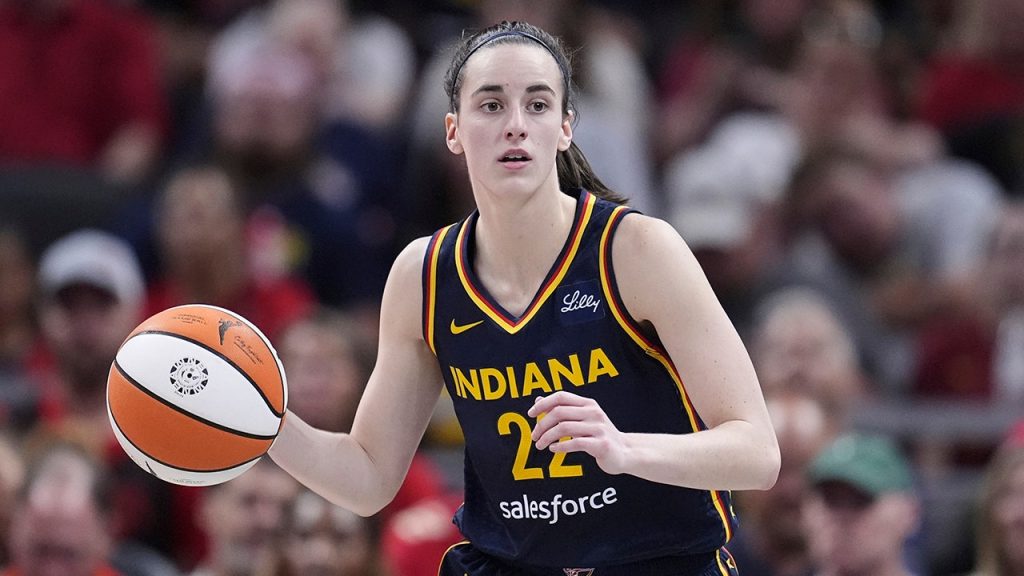The Arrest and Initial Hearing of Michael Lewis
Michael Lewis, a 55-year-old Texas resident, found himself at the center of a legal maelstrom after being arrested for allegedly stalking and sending sexually violent messages to WNBA star Caitlin Clark. His initial hearing in Marion County Superior Court was marked by an unusual turn of events. Upon entering the courtroom, Lewis leaned back in his chair and declared himself "guilty as charged." However, Judge Angela Davis, adhering to legal protocol, advised Lewis to exercise his right to remain silent and entered a not-guilty plea on his behalf. This procedural maneuver is standard practice in initial hearings, as judges refrain from accepting any plea other than not guilty at this early stage of the proceedings. The court set Lewis’s bail at $50,000 and imposed a restraining order prohibiting him from approaching both the Gainbridge Fieldhouse, home of the Indiana Fever, and the Hinkle Fieldhouse, where Butler University’s basketball teams play. This latter restriction is particularly noteworthy as Clark’s boyfriend, Connor McCaffrey, is an assistant coach for the Butler men’s basketball team.
The Nature of the Allegations Against Lewis
Lewis faces a serious charge of stalking threatening sexual battery or death, a Level 5 felony under Indiana law. This charge stems from a series of disturbing messages he allegedly sent to Clark through his X (formerly Twitter) account. The messages, reportedly graphic and sexually violent in nature, contained threats and unsettling details, including claims that Lewis had been driving around Clark’s house multiple times. In one particularly chilling message, he reportedly warned Clark "not to call the law just yet." He also alluded to attending a Fever game and sitting behind the team’s bench, further fueling Clark’s fears. These alarming messages prompted Clark to contact authorities, expressing her growing concern for her safety.
The Investigation and Lewis’s Response
Authorities had previously engaged with Lewis regarding his online communications with Clark. On January 8th, they questioned him about the messages he had sent to the WNBA star. At that time, Lewis reportedly downplayed the number of messages and attempted to trivialize their content, characterizing them as a "fantasy-type thing" and a "joke." He also mentioned plans to visit Indianapolis for vacation, seemingly attempting to deflect suspicion. However, the escalating nature of his messages and Clark’s expressed fear prompted a more serious investigation culminating in his eventual arrest.
The Broader Context of Stalking and Athlete Safety
This case underscores the growing concern over the safety and security of athletes, particularly female athletes, in the face of online harassment and stalking. The accessibility of athletes through social media platforms, while fostering fan engagement, also creates vulnerabilities and opportunities for obsessive behavior. The Marion County Prosecutor, Ryan Mears, emphasized the courage required for women to come forward in such cases, acknowledging that many incidents go unreported. He highlighted Clark’s bravery as an example for other women facing similar threats, emphasizing the importance of creating a safe environment for women to live and work without fear of sexual violence.
Parallels with the Paige Bueckers Stalking Case
The arrest of Michael Lewis echoes a similar incident involving UConn women’s basketball star Paige Bueckers. Just a month prior, Robert Cole Parmalee, a 40-year-old Oregon man, pleaded guilty to stalking Bueckers. Parmalee’s obsessive behavior included traveling to Connecticut with an engagement ring and lingerie, expressing his intent to marry the unsuspecting athlete. He was apprehended near Bradley International Airport, further highlighting the lengths to which stalkers may go. These cases highlight the vulnerability of high-profile athletes to unwanted attention and the potential dangers they face.
The Importance of Addressing Online Harassment and Stalking
Both the Caitlin Clark and Paige Bueckers cases underscore the urgent need for greater awareness and effective measures to combat online harassment and stalking. The ease with which individuals can use social media and other online platforms to target and harass others necessitates proactive steps from law enforcement, social media companies, and society as a whole. Athletes, like anyone else, deserve to feel safe and secure, both online and offline. These incidents serve as a reminder of the importance of taking threats of stalking and harassment seriously and providing support to victims who come forward. The legal proceedings against Michael Lewis will play out in the coming months, and the outcome will have important implications for how such cases are handled in the future. The hope is that these incidents will spur greater dialogue and action to protect athletes and others from the harmful effects of online harassment and stalking.

